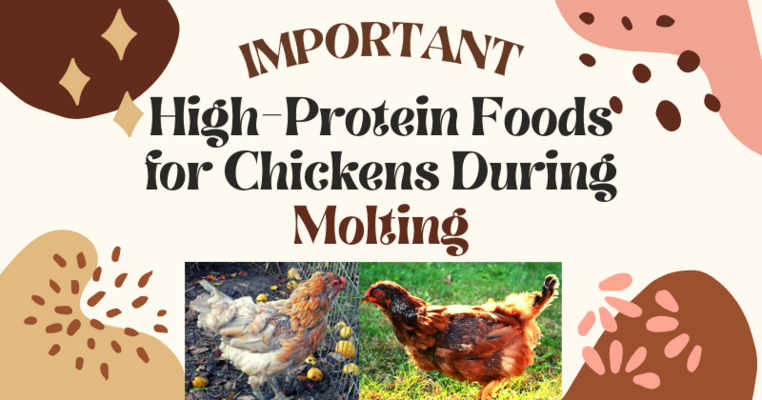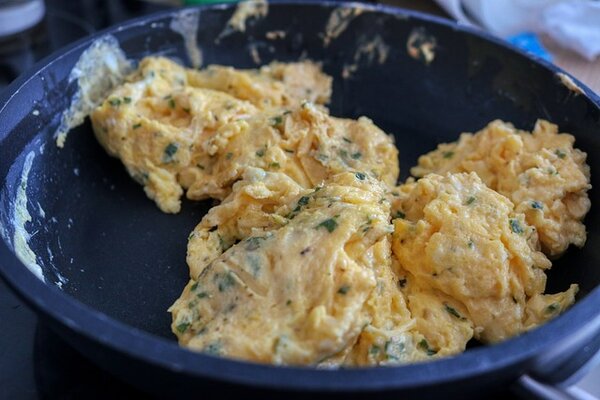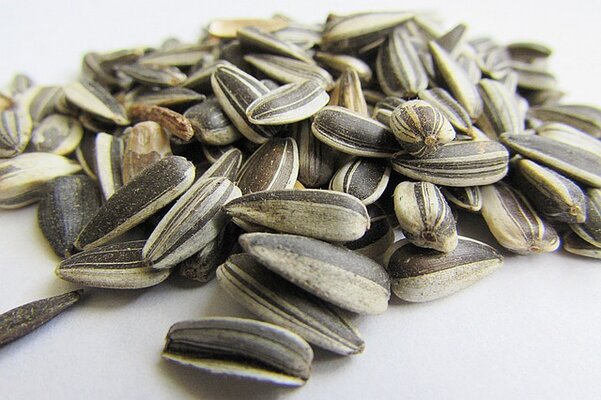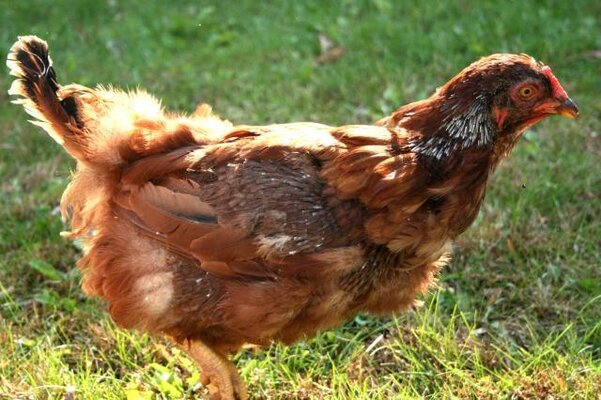Chickens need s certain amount of nutrients to grow strong & healthy. Water, proteins & carbohydrates are among the nutrients chickens require. Their growth depends on consuming the correct amount of these nutrients.
Its significance can be summarized as follows.

Protein is essential for chickens to survive. Every day, owners make sure their flocks get enough protein to grow properly. There are many sources of protein for chickens. Below are some examples.
By doing so, you have easy access to mealworms. Additionally, mealworms contain 53% protein. Feel free to mix them with their feed, oatmeal, etc.

Your chickens will receive vitamins A, C, and other essential vitamins and minerals from plant-based sources of protein. Your chicken will also benefit from the fiber in plants.
Peas contain as much as 23% protein. Peas that are natural & organic are better than those that are processed & canned. In the summer, frozen peas are also a good treat for chickens.
You need to keep a few things in mind before feeding your chickens protein-rich foods. Protein consumption will change as your chickens grow. Chicks need more protein than older chickens do.
Based on their age & activity level, you should feed them the appropriate amount of protein. In the case of excessive protein consumption, you may observe looser bowel movements, blistered feet, etc., in your chickens. The overuse of this nutrient can also lead to respiratory problems in addition to increasing ammonia production in their coop.

It's very necessary for chickens to molt. As the chicken loses its feathers, it replaces them with fresh ones. During molting, their old feathers are replaced by stronger and newer ones. It's important for them to eat enough protein so they can rebuild new, stronger & more beautiful plumage.
Fall or late summer is usually when molting takes place. It usually occurs during shorter daylight hours. Chickens do not have a specific timeframe for when it occurs. There are a lot of factors that influence molting, including breed, genetics, and health.
During this time, owners should engage in activities that will help reduce their stress levels or prevent any stressor from occurring. Due to the fact that feathers are composed primarily of protein (80-90%), protein is an important nutrient during these times.
Molting can even slow down or stop hens from laying eggs. It is recommended that chickens consume a certain amount of protein each day. Molting is one time when they require a boost of protein.
Chickens need protein to survive. Among the most basic and crucial nutrients, it is at the top of the list especially during molting season to aid in the regrowth of new feathers. Knowing these important high-protein foods and high-protein snacks that are high in protein for chickens can help you expand the menu of your flock.
One thing to note is that too much of a good thing can be bad. So always keep in mind the 90/10 rule when it comes to feeding your chickens - that is: 90% commercial feed & 10% snacks/fresh table scraps.
Further Reading:
Chickens Need Protein
Are chickens so dependent on protein for a reason? Most animals, including chickens, require protein for survival. Almost all animals require this nutrient. Protein is essential for animal growth.Its significance can be summarized as follows.
- Growth
- Production of eggs
- Environment-adaptation
Protein sources for chickens
Protein is essential for chickens to survive. Every day, owners make sure their flocks get enough protein to grow properly. There are many sources of protein for chickens. Below are some examples.
1. Cooked Eggs
Chicken eggs provide protein to chickens in the same way as fresh eggs do to humans. Some chicken owners may find it strange, but chickens eat eggs as well, so it is entirely your decision whether to do so.2. Mealworms
You can purchase mealworms from stores & farms. It's a great source of protein for chickens, and they love them! Mealworms can be raised at home if you know what you're doing.By doing so, you have easy access to mealworms. Additionally, mealworms contain 53% protein. Feel free to mix them with their feed, oatmeal, etc.
3. Earthworms
There's a bit of work involved in finding earthworms, so you might have to search for them yourself. You can do so after it rains.4. Meat
Chickens are omnivores and meat provides protein to chickens in the same way as it does to humans. Any type of meat is fine as long as it is properly prepared. Their favorite is animal carcasses. It doesn't matter how they are prepared, your flock is likely to be interested as long as they don't seem too unpleasant.5. Bugs
Chickens enjoy bugs more than anything else! Outdoors, you'll also find a lot of bugs. Since ticks are common in chicken spaces, chickens devour them when they roam about. Maggots are also a big hit with chickens, who go nuts over them. If your backyard chickens free range, then they'll have no problem finding plenty of these in your yard for a protein boost.Plant-based Sources of Protein for Chickens
Your chickens will receive vitamins A, C, and other essential vitamins and minerals from plant-based sources of protein. Your chicken will also benefit from the fiber in plants.
6. Peas
Peas are cheap & packed with protein. Make sure you grow garden peas if you want them in your garden.Peas contain as much as 23% protein. Peas that are natural & organic are better than those that are processed & canned. In the summer, frozen peas are also a good treat for chickens.
7. Oats
This breakfast oatmeal is packed with protein and has a few extras! Other ingredients can be added to oatmeal along with fruit & vegetable pieces for extra nutrients. Oats are high in protein, iron, calcium & fiber, with a protein content ranging from 10-17%.8. Lentils
Lentils are high in protein and low in fat. Lentils contain between 26 and 30% protein. This is a great choice because it is healthy & affordable.9. Sunflower seeds
Sunflower seeds contain up to 25% protein. Grow sunflower plants to save money. Additionally, these seeds are packed with nutrients that help fight disease.10. Pumpkin seeds
Chickens also eat pumpkin seeds, which are an excellent source of protein. This seed contains 33% protein. Since pumpkin seeds are expensive in most stores, people typically only buy them around Halloween, when pumpkins are in season.Too much protein can be bad
Despite the fact that chickens need protein to stay healthy, their growth is limited. Chickens require specific nutrients on a daily basis in order to survive. It is harmful to their health to take too much of these nutrients, as well as to not receive enough of them.You need to keep a few things in mind before feeding your chickens protein-rich foods. Protein consumption will change as your chickens grow. Chicks need more protein than older chickens do.
Based on their age & activity level, you should feed them the appropriate amount of protein. In the case of excessive protein consumption, you may observe looser bowel movements, blistered feet, etc., in your chickens. The overuse of this nutrient can also lead to respiratory problems in addition to increasing ammonia production in their coop.
Molting
It's very necessary for chickens to molt. As the chicken loses its feathers, it replaces them with fresh ones. During molting, their old feathers are replaced by stronger and newer ones. It's important for them to eat enough protein so they can rebuild new, stronger & more beautiful plumage.
Fall or late summer is usually when molting takes place. It usually occurs during shorter daylight hours. Chickens do not have a specific timeframe for when it occurs. There are a lot of factors that influence molting, including breed, genetics, and health.
During this time, owners should engage in activities that will help reduce their stress levels or prevent any stressor from occurring. Due to the fact that feathers are composed primarily of protein (80-90%), protein is an important nutrient during these times.
Molting can even slow down or stop hens from laying eggs. It is recommended that chickens consume a certain amount of protein each day. Molting is one time when they require a boost of protein.
Chicken Molting Season Snacks That Are High In Protein
It is during molting season that your chickens require extra protein. It's important to note that when this process starts, they'll need foods that are high in protein and high in nutrition. These are some chicken snacks for molting season.1. Eggs
Scrambled eggs are very easy to make and your chickens might also enjoy some. Due to the texture of eggs, they are very appealing to them.2. Chicken
Chickens provide humans with protein, and chickens also provide chickens with protein. And it's tasty! However, chicken can be expensive when it comes to snacks for chickens. Do not hesitate to give your flock cooked chicken if you have some leftover scraps.3. Shellfish
Seafood is also popular with chickens! The flock benefits from shellfish as a source of protein. It's nearly impossible to remove all the meat from shellfish most of the time. The result is that they often get some of the meat and flavor from pecking on the shells.Conclusion
The tastes of your chickens may change as they grow up, so you should give them more options. The fact that they enjoy tasting food allows them to discover more things and expand their palates. It is also important to diversify their diets in order to provide them with more nutrients and to maintain a balanced diet.Chickens need protein to survive. Among the most basic and crucial nutrients, it is at the top of the list especially during molting season to aid in the regrowth of new feathers. Knowing these important high-protein foods and high-protein snacks that are high in protein for chickens can help you expand the menu of your flock.
One thing to note is that too much of a good thing can be bad. So always keep in mind the 90/10 rule when it comes to feeding your chickens - that is: 90% commercial feed & 10% snacks/fresh table scraps.
Further Reading:





